Discover Chain Reaction
Chain Reaction

Chain Reaction
Author: FPRI
Subscribed: 223Played: 5,894Subscribe
Share
© Foreign Policy Research Institute
Description
Chain Reaction is the Foreign Policy Research Institute’s flagship network of podcast series examining the political, security, economic, and social trends shaping our world. Throughout the year we are talking with experts about developments in Russia’s war in Ukraine, the new European security order, defense and geopolitical issues in the Baltic States, as well as current and future national security challenges and opportunities in the technology and space sectors. Join us each month for: Bear Market Brief, Behind the Front, Baltic Ways, Report in Short, and the Ties That Bind: NATO at 75 and Beyond.
fpriinsights.substack.com
fpriinsights.substack.com
184 Episodes
Reverse
Welcome back to the Ties That Bind.This week, we go back North to the shores of the Baltic Sea for the perspective from Latvia.In this episode, we’ll hear from three Latvian experts on the evolution of the country’s defense posture, NATO cooperation, and its response to Russia’s invasion of Ukraine. We’ll also hear about what’s happening on the domestic front, with the evolution of national and municipal civilian defense programs, Latvia’s infrastructure investments, and how the country’s public sector is thinking about resilience and building trust in a whole-of-society defense approach.Featured Guests: * Māris Andžāns is the Director of the Center for Geopolitical Studies Riga and an associate professor at Rīga Stradiņš University.* Ieva Berzina is a Senior Researcher at the Center for Security and Strategic Studies, National Academy of Defense of the Republic of Latvia, and an associate professor at Vidzeme University of Applied Sciences.* Linda Ozola is a Councilor of the Riga City Council, and former Deputy Mayor of Riga (2020-2025).Listen to the previous episode Lessons in History and Communications from NATO’s Principal Spokesperson here. Get full access to FPRI Insights at fpriinsights.substack.com/subscribe
Welcome back to the Ties That Bind. This week, we are looking further south along NATO’s eastern flank at Romania.Romania has long advocated for increased NATO and US presence in the Black Sea. Since the 2022 Russian invasion of Ukraine, the importance of the Black Sea and Romania’s role have been reflected in an increased NATO presence and multiple defense and infrastructure investments. The country has been a critical actor in helping the Ukrainian war effort, serving as a logistics and military training hub, and securing Ukrainian grain exports in the first years of the war.In this episode, we’ll hear from three Romanian experts about the country’s role in NATO and Black Sea security, its defense investments, and plans to address strategic infrastructure challenges that have far-reaching significance for the alliance. We’ll also hear about what’s happening on the domestic front, notably the long-term repercussions of the annulled 2024 presidential election. While public opinion shows high support for NATO, Romania and its neighbors continue to be targeted by long-term Russian influence campaigns, and we’ll hear how these are affecting social attitudes towards NATO and Western institutions.Featured guests: * Antonia Colibasanu, Senior Analyst, Geopolitical Futures, FPRI Senior Fellow* Eusebiu Slavitescu, European defense analyst, former Romanian MFA* Alina Bargaoanu, Communications expert, University of Political Studies and Public Administration, BucharestListen to the previous episode on Poland in NATO here. Get full access to FPRI Insights at fpriinsights.substack.com/subscribe
In a rapidly evolving world where Washington might not have the same sway it used to, how should the US best position itself? Who are the “schools” or “camps” contesting the direction of foreign policy. In this episode of The Continent, Emma Ashford joins Aaron Schwartzbaum to talk about American grand strategy and her recent book First Among Equals: US Foreign Policy in a Multipolar World. Get full access to FPRI Insights at fpriinsights.substack.com/subscribe
Welcome back to the Ties That Bind.This season, we are looking at NATO from a bit of a different vantage point, specifically that of the frontline states. How are frontline states investing in and planning for their defense? How are they thinking about their role and contributions in the Alliance and on the world stage? How have their historical experiences shaped how their governments and societies think about defense, countering disinformation, and changing economic realities? And how are they preparing for a potential conflict with Russia? This week, we are looking at Poland, a country that has completely transformed its military and defense capacity over the last two decades. Periods of transition are not always painless, and we’ll hear what challenges Poland has faced and what opportunities lie ahead as it looks to become a leading voice within the alliance and on the world stage.Featured guests: * Anna Fotyga, former Polish Foreign Minister, 2006-2007* Tomasz Szatkowski, former Deputy Defense Minister, 2015-2019, and Ambassador to NATO, 2019-2024* Jakub Romaniuk, Programme Director, Foundation Institute for Eastern Studies Get full access to FPRI Insights at fpriinsights.substack.com/subscribe
Introducing our new monthly podcast series, Behind the Front, which features conversations with industry experts on challenges and opportunities facing the technology, space, and national security sectors. This week Aaron Stein sat down with Scott “FUG” Gilloon, who currently serves as the Sector Vice President of Air Force Strategic Development and Capability Assessments at General Atomics Aeronautical Systems, Inc. The two talked about General Atomics’ CCA, its origin story, how these aircraft may be used in combat, and what the future of air combat may entail. Get full access to FPRI Insights at fpriinsights.substack.com/subscribe
A flurry of back-and-forth diplomacy, a renewed Russian offensive, and a rare outburst of protest in Ukraine. The Kyiv Dispatch with Aaron Schwartzbaum and Fabrice Deprez returns to break down what's actually happening and most importantly, how people on the ground are feeling about it.For more reporting and stories from Ukraine, be sure to follow Fabrice’s newsletter, Eastern Radar. Explore more from the Bear Market Brief. Get full access to FPRI Insights at fpriinsights.substack.com/subscribe
Are drones the future of war? What lessons can be learned from Ukraine for the Taiwan contingency? To discuss these topics and more, FPRI President Aaron Stein sat down with Lorenz Meier, CEO of Auterion, to discuss drones and the future of war. Get full access to FPRI Insights at fpriinsights.substack.com/subscribe
Why does Russia play such an important role in geopolitics? If it's because of 'strength'... what does strength even mean? And why do conceptions of Russia's strength vary so extremely? Seva Gunitsky joins Aaron Schwartzbaum on this week’s Bear Market Brief podcast.Related ReadingRussia is both weak and strong - that's the problem by Seva Gunitsky Get full access to FPRI Insights at fpriinsights.substack.com/subscribe
How might combat collaborative aircraft be used to fight a war in Europe? Or the Indo-Pacific? To discuss these questions, and the latest from the YFQ-44A, President Aaron Stein sat down with Andrew Van Timmeren, the director of air dominance systems at Anduril Industries, about what he and the company are working on.FPRI’s new project, Behind the Front, analyzes current and future national security challenges with a focus on the Defense Industrial Base, military procurement, lessons learned from ongoing conflicts, and challenges and opportunities in the technology and space sector. Read more here. Get full access to FPRI Insights at fpriinsights.substack.com/subscribe
Here on the Bear Market Brief, a lot of what we focus on is, simply put, risk: what might happen, and what might it mean?On this episode, geoeconomic and country risk expert Rachel Ziemba joins Aaron Schwartzbaum to delve in the discipline of Political Risk: how does one "do" the field?Bear Market Brief features a weekly newsletter and a monthly podcast that strives to be a resource for specialists, generalists, and anyone with an interest in the post-Soviet space. We provide a platform for analysis, particularly for emerging area experts and academics, and a space for even-handed, fact-based conversations in hopes of improving Russia/Eurasia analysis and coverage. Get full access to FPRI Insights at fpriinsights.substack.com/subscribe
Listen to Part 1 here.In this special two part episode of Chain Reaction, Senior Fellow Rob Lee interviews Yevgeniy Malik, a squad leader in Ukraine's 36th Marine Brigade. Malik fought in Mariupol during the beginning of the war and defended the Illich Iron and Steel Works. He spent more than two years in captivity in Russia as a prisoner of war from April 2022 to September 2024. In Part 2, Yevgeniy details his time in captivity in Russia’s Mordovia prison, the circumstances of his eventual release in a prisoner exchange in September 2024, and reflects on his ordeal and the conflict as a whole. Please be advised that this episode contains content that may be disturbing to some listeners. Get full access to FPRI Insights at fpriinsights.substack.com/subscribe
In this special two-part episode of Chain Reaction, Senior Fellow Rob Lee interviews Yevgeniy Malik, a squad leader in Ukraine's 36th Marine Brigade. Malik fought in Mariupol during the beginning of the war and defended the Illich Iron and Steel Works. He spent more than two years in captivity in Russia as a prisoner of war from April 2022 to September 2024. During this time Malik faced daily beatings and torture. In Part 1, Yevgeniy explains what it was like to be a prisoner of war in Russian prisons, and what the thousands of Ukrainian prisoners of war still face every day.Please be advised that this episode contains content that may be disturbing to some listeners.Part 1 - Chapters* Introductions - 2:26* Setting the scene in Mariupol - 5:04* Negotiating surrender - 14:43* Surrender at the bridge - 18:25* Arriving in Sartana - 20:29 * Time in Olenivka prison -22:19* Transfer into Russia - 26:37* Time in Ryarsk prison - 30:27* Interrogations - 46:25* A Day in Ryarsk - 56:18 Get full access to FPRI Insights at fpriinsights.substack.com/subscribe
This week technologist Joel Burke, author of the recently published Rebooting a Nation: The Incredible Rise of Estonia, E-Government and the Startup Revolution, joins Indra Ekmanis on the Baltic Ways podcast.He shares his insights on Estonia’s rise as a leader in e-government, technological exports in a globalized world, and what the US has to learn from Estonia in a moment of disruption. Baltic Ways is a podcast from the Association for the Advancement of Baltic Studies, produced in partnership with the Baltic Initiative at the Foreign Policy Research Institute. The views and opinions expressed in this podcast are those of the authors and do not necessarily reflect the official policy or position of AABS or FPRI. Get full access to FPRI Insights at fpriinsights.substack.com/subscribe
Since November of last year, the small country of Georgia has seen daily protests against its increasingly authoritarian government. For over 150 straight days Georgians have been in the streets demanding that their country return to the path of European integration, and halt what they describe as its slide toward becoming a Russian client state. But the Georgian government has not budged, cracking down on the protests, sometimes with violence, and refusing to consider the protestors’ demand for new elections. How might this all end, and what does Georgia’s plight mean for the country itself, for Europe, and for the US? To discuss these questions, former senior Georgian government officials Batu Kutelia, Dato Sikharulidze, and Miro Popkhadze join Bob Hamilton on Chain Reaction. Get full access to FPRI Insights at fpriinsights.substack.com/subscribe
In this episode of Report in Short Aaron Schwartzbaum speaks with András Tóth-Czifra about his recent report, “The Kremlin’s Balancing Act: The War’s Impact On Regional Power Dynamics.” In the report, Tóth-Czifra explains the shift of government control, highlights instances of pushback, and identifies limitations on the Kremlin's strategy going forward.The Kremlin's centralization drive has manifested in several ways, including tightening control over regional and municipal political institutions, expanding financial control over regional budgets and policy priorities, nationalizing and indirectly mobilizing business assets, and introducing new priorities in personnel policy.These changes have created winners and losers, resulting in friction and resistance from regional elites who perceive their interests and autonomy as threatened. The sustainability of the Kremlin's strategy is uncertain, and risks intensifying tensions and worsening government instability.András Tóth-Czifra is a Fellow in the Eurasia Program at the Foreign Policy Research Institute (FPRI) and contributing author for FPRI's Bear Market Brief. You can also read more of his analysis in No Yardstick. Get full access to FPRI Insights at fpriinsights.substack.com/subscribe
Persistent reports indicate that the Trump Administration will de-emphasize the US commitment to European security in favor of an emphasis on defending the US homeland and shifting resources to the Indo-Pacific. This follows a long-running critique of America’s European allies for investing too little in their own defense, a critique that predates both Trump Administrations, but one that has gotten louder, especially in the second Trump Administration. But what is the view in European capitals of the emerging US policy toward Europe, and what might its effects be on Transatlantic relations? To discuss these questions, Dr. Michael Neiberg of the US Army War College, recently returned from a visit to Estonia and Germany, joins Bob Hamilton on Chain Reaction. Get full access to FPRI Insights at fpriinsights.substack.com/subscribe
Ukrainians have resisted Russia’s aggression for years. Since the full-scale invasion of their country in 2022, Ukrainian women in particular have taken on important roles on the frontlines, in civil society, and at home. Gražina Bielousova’s research examines how Ukrainian leftist feminists advocate for their causes at home and abroad, facing distinct challenges as they attempt to defend their country. The Ukrainian case is also distinct from Latvia and Lithuania, whose organizing takes on different shapes for the same cause. Bielousova joins Ben Gardner-Gill to explain these interactions and discuss the ongoing process of decolonization in Baltic Studies. Transcript Ben Gardner-Gill: Hello, and welcome to Baltic Ways. I'm your co-host, Ben Gardner-Gill. Today we're talking with Gražina Belousova. Gražina is a feminist scholar of race, religion, and gender in post-Soviet Europe. She earned her PhD from Duke University in 2022. Currently, she is a postdoctoral scholar at Vilnius University's Institute of International Relations and Political Science and a researcher at Vytautas Magnus University.Her current research project focuses on leftist feminisms in East Europe in light of Russia's war against Ukraine, which will culminate in her first book, What's Left of Feminism in East Europe.Gražina, welcome to Baltic Ways.Gražina Belousova: Thank you so much for having me, Ben.BGG: So let's kick off by just hearing a little bit more about your background. I know you finished your PhD pretty recently. Could you tell us a little bit more about how you got into academia, sort of your research interests, and what you're working on at the moment?GB: Right. Yes, I just defended my PhD in 2022. It's hard to believe that it's been nearly three years now. In my PhD, I focused on historical matters. My PhD was in religion and cultural anthropology. And one of the things that I found missing when I was trying to theorize the part of the world that I call home and that most of the world calls Eastern Europe—I realized that I was lacking a solid theory that would bridge economics, anthropology, and religious studies.I wanted to understand how religious difference, especially perceived religious difference, played a role in creating the space that we call Eastern Europe today. And that took me to 18th and 19th century travel writings by Western travelers, oftentimes who were on an official mission, to the edges or to the depths of the Russian Empire.So I've read a lot of ambassadors’ letters. I've read a lot of dispatches from St. Petersburg and Moscow, trying to understand how Westerners thought about that religious difference and how that thinking structured their understanding of what this place was and why it was different. What I tried to argue is actually that perceived religious difference was at the root of thinking of Eastern Europe as something different.Now, when I chose to embark on that topic, I had to put another topic aside, which was the question of very contemporary matters, the question of leftist political thought and feminism. At that point, it felt to me more pertinent to write the kind of theory that I felt was missing. When I was given the opportunity to pursue a postdoctoral position at Vilnius University Institute of International Relations and Political Science, I pitched this idea to them.And we very quickly pulled together the application. And the next thing I knew, I was embarking on a project on leftist feminisms in Eastern Europe in light of the war in Ukraine. So, the path was windy, but here I am today, knees and elbows deep, in the project on leftist feminism.BGG: Wonderful. I mean, a windy path is going to be familiar to so many people listening.So, no surprise and no surprise as well that the full-scale Russian invasion of Ukraine has really impacted your work and your life as it has for many of us. So tell us a little bit more about that.Over the last three years, we've been watching and seeing the horrors in Ukraine. From your perspective, from your academic work, what are some of the main things that you're looking at?GB: One of the things that I'm particularly interested in is the way that groups that are on the edges of society, on the margins of society, such as leftists, such as feminists, and especially leftist feminists—when the two come together and try to articulate their social and political vision and explain to themselves and to their fellow compatriots and oftentimes foreign donors, in my case, also Western leftist feminists, their relevance, how they're trying to articulate their position.War has a penchant for heightening nationalist tendencies. And this is not some kind of particular Eastern European pathology. War anywhere is going to produce these results. That is normal. People defend themselves and articulate themselves on the basis on which they're being attacked, on the basis on which they're being bombed.So this is what we are seeing in Ukraine. Leftism in Eastern Europe, because of the Soviet past, is often associated with Soviet nostalgia. Feminism, on the other hand, is oftentimes seen as something antithetical to national identity, something that is imported from the West, and something that either has no relevance or can be dangerous, especially when questions of national unity, questions of national defense come about.That is one of the reasons why I embarked on this journey, and this is one of the reasons why Ukraine had to be part of this picture. Because while the other countries that I'm looking at—Lithuania, Latvia, Poland, and Moldova—experience the threat of invasion, Ukraine is under attack.And one of the things that I'm finding is that Ukrainian leftist feminists are incredibly resourceful and incredibly gifted at articulating their relevance.One of the things that I'm going to say that stems from that understanding of leftist feminism that's erroneous, but that's pervasive, is that Ukrainian leftist feminists do not debate the legitimacy of the Ukrainian state. What is in question is the way things are happening under the conditions of war.The questions of most vulnerable people—so questions of what happens with people with disabilities, questions of what happens to single mothers, questions of what happens to the elderly people who are maybe unable to evacuate, questions of what happens to the working class people—all of these things are at the forefront of their minds. They're trying to be the advocates of their pleas to the larger society, while at the same time trying to articulate Ukraine's right to self-defense to Western leftist feminists.BGG: So they have both this tension, maybe tension is the wrong word, tell me if it isn't, but they have this tension internally where they're trying to advocate for what they see as justice or what is right with a domestic audience who, understandably, may be more frequently focused on what's happening at the front lines.And then there's also this international question, the foreign audience for these Ukrainian leftist feminists, who have a very different perspective on the Russia-Ukraine conflict. And I specifically use that verbiage instead of Russia's invasion of Ukraine because they're going to think about it very differently.So let's split those out a little bit, and I want to start with the domestic. You talked about the advocacy of these leftist feminists for the most marginalized groups in society, for those who are most vulnerable.In your view, where have they been most successful, perhaps? Where have they seen actual progress happen from their advocacy?GB: One of the things that immediately comes to mind, and many of my interlocutors were directly involved with, is the nurses’ movement–the unionization and self-organization of the nurses.There is a movement called Be Like Nina, referring to one of the nurses seen as a pioneer of resisting exploitation. And, of course, under the conditions of war, the labor of nurses is incredibly valuable and needed, but not always appropriately compensated. This is what we can call essential labor, especially when we talk about the front lines, where people are wounded.Many of them are wounded very badly on a daily basis. However, there are other things that are happening in the background as well. While a lot of the resources are pulled to the front, there are people who are experiencing regular daily struggles with their health. And the nurses are being stretched very thin.And this was something that was really amazing to me. This was really one of the very few instances where I saw academics who are leftist feminists actually touching the ground with their ideas: where they got involved with helping the nurses organize, but not taking the center stage, where they acted as support, as a resource, but not overtaking the movement, rather creating the conditions under which nurses themselves could articulate what it was that they needed, what their goals were.And that was incredibly impressive to me because healthcare is severely underfunded across the whole region, and to achieve such tangible goals as wage increases and regulations that empower nurses to do their job was truly impressive. With every conversation with a woman—because I specifically talk only to women—I just felt sheer amazement, because this is so contrary to so many imaginations of what civil society, self-organization, or networks are like in Eastern Europe.This is so contrary to what some have called ‘uncivil’ society. What is happening is really self-organization and civil society at its best, organized by women who are oftentimes stretched very thin, not just at work, but also at home, women whose husbands are potentially on the front lines.So to me, I really cannot think of anything else that, in terms of real life impact and in terms of transforming people's lives, has been grander (I'm going to go for that word) than this.BGG: That's remarkable, and thank you for bringing that. I had very li
On November 1 2024, the roof of a newly €55 million renovated railway station in Novi Sad, Serbia’s second biggest city, collapsed and killed 16 people. The deaths sparked Serbia’s largest wave of student-led anti-government protests since Yugoslavia’s disintegration in 2000.Mid-March protests in Serbia saw roughly one in twenty Serbians participate. This week Mladen Mrdalj joins host Aaron Schwartzbaum to explore how the tragedy in Novi Sad sparked a mass movement, and why it spells potential trouble for Serbian President Aleksandar Vučić.Explore previous episodes of The Continent series. Get full access to FPRI Insights at fpriinsights.substack.com/subscribe
The Trump Administration has thrown global financial markets into chaos with its massive but on-again, off-again tariffs against America's trading partners, both large and small. The White House has at times framed the tariffs as a revenue generation scheme, at other times framed them as an attempt to return manufacturing to the US, and at still other times has said they are an attempt to gain concessions from other countries on non-economic issues. What are the goals of the tariffs, how has the administration calculated them, and what are their likely effects on global finance and trade? To answer these questions and others, Dr. Mark Duckenfield, Professor of International Economics at the US Army War College, joins host Bob Hamilton on Chain Reaction. Get full access to FPRI Insights at fpriinsights.substack.com/subscribe
This week on Chain Reaction, we feature an installment of the Baltic Ways podcast. Host Indra Ekmanis welcomes back professors Margarita Šešelgytė (Vilnius University), Daunis Auers (University of Latvia), and Andres Kasekamp (University of Toronto) for a roundtable discussion on the first two months of Donald Trump’s second term and the US administration’s impact on the Baltic countries and broader Europe. This episode was recorded on March 14, 2025.You May Be Interested InBaltic Roundup | March 2025 A look back on the month’s major political, cultural, and economic events in Estonia, Latvia, and Lithuania.Explore more from FPRI’s Baltic Initiative here. Baltic Ways is a podcast from the Association for the Advancement of Baltic Studies, produced in partnership with the Baltic Initiative at the Foreign Policy Research Institute. The views and opinions expressed in this podcast are those of the authors and do not necessarily reflect the official policy or position of AABS or FPRI. Get full access to FPRI Insights at fpriinsights.substack.com/subscribe


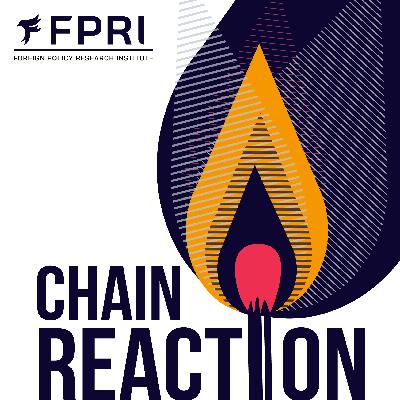
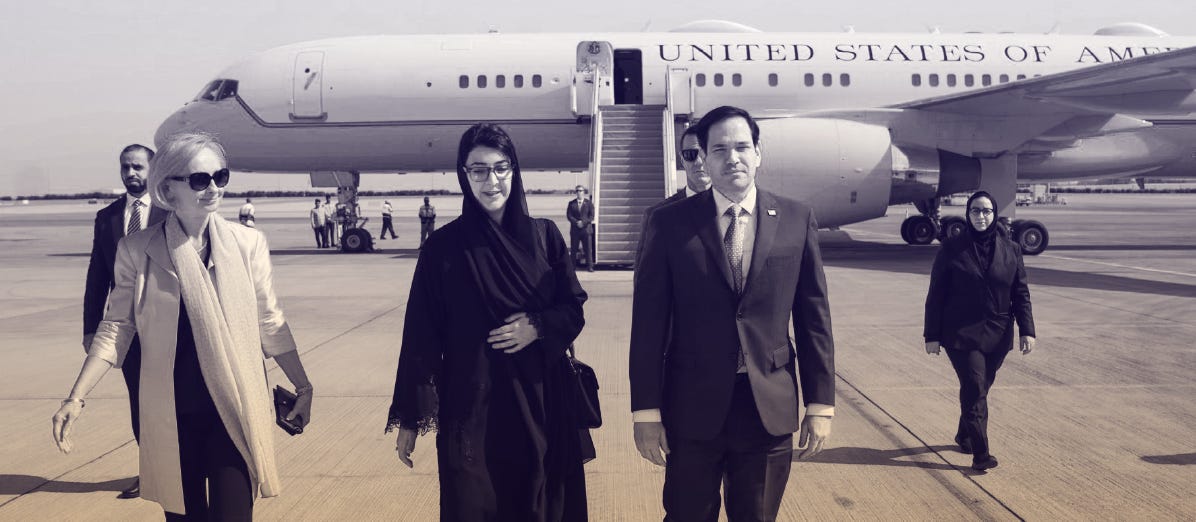

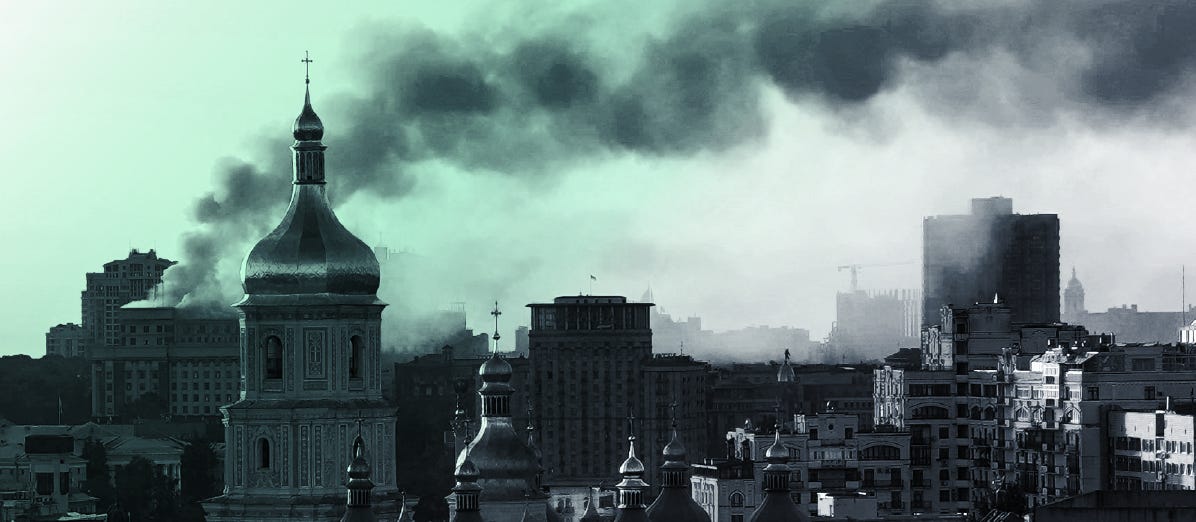

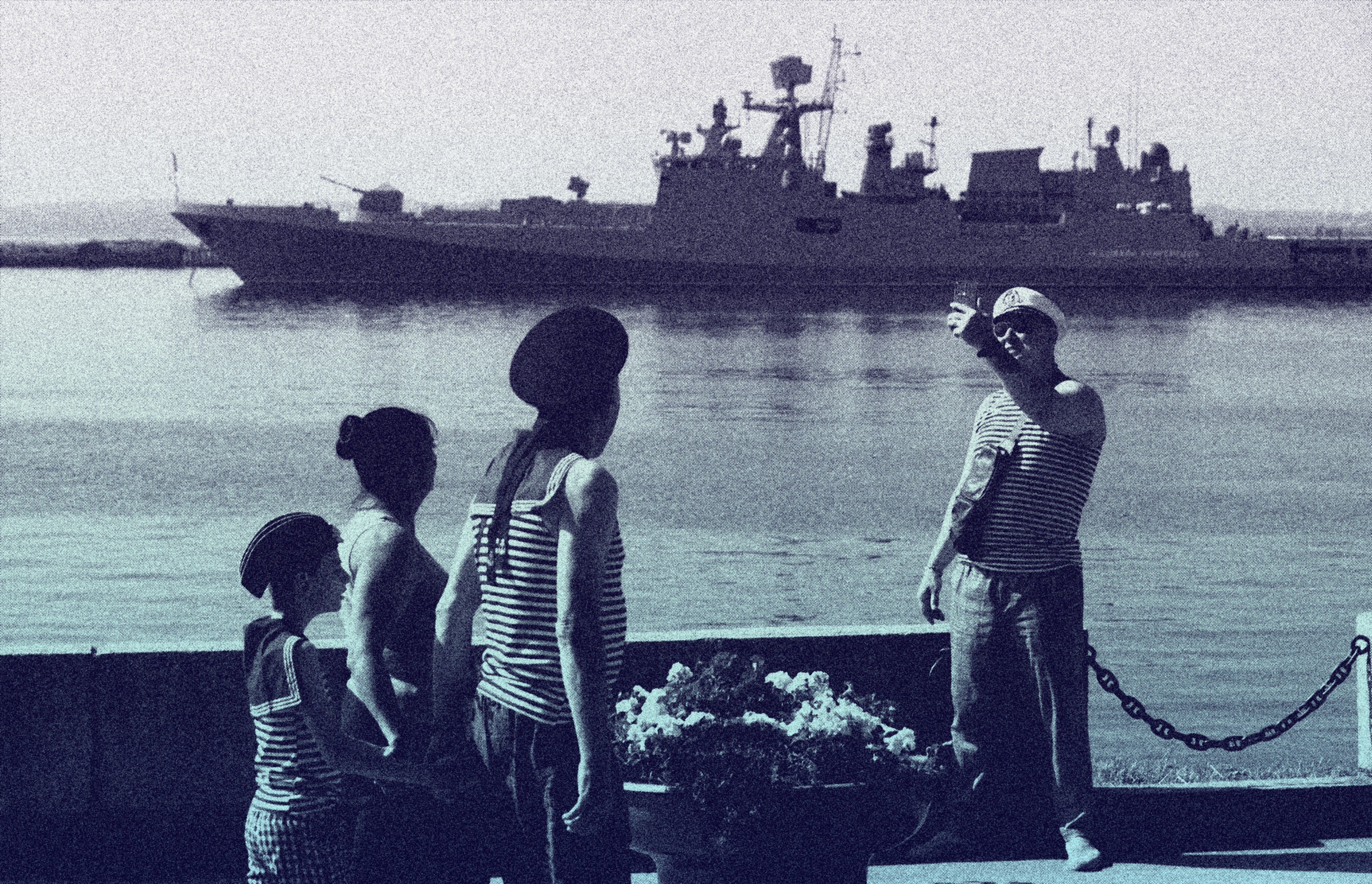


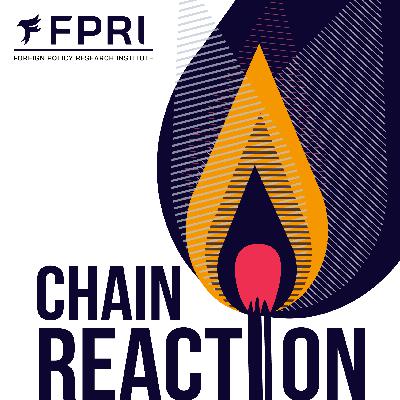



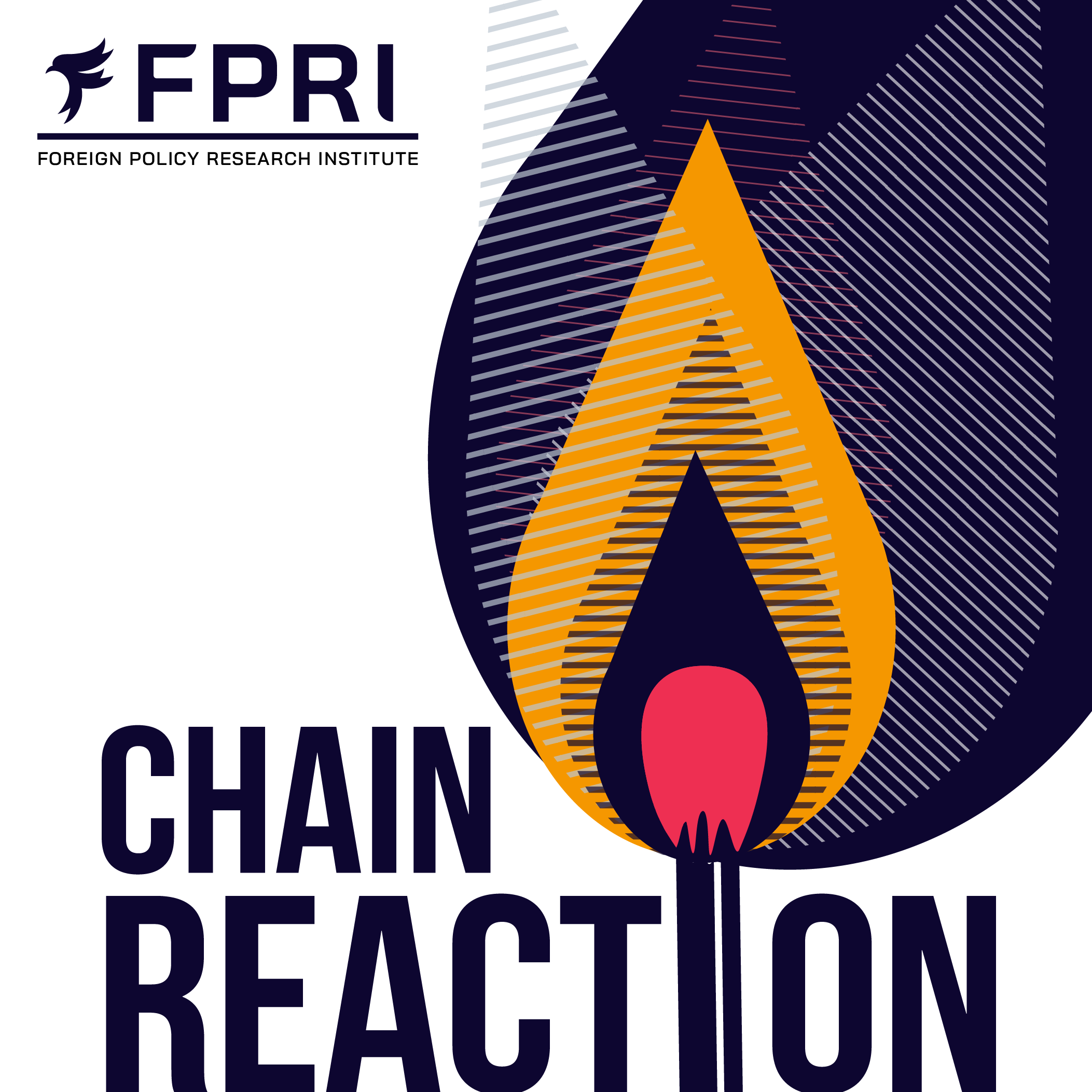
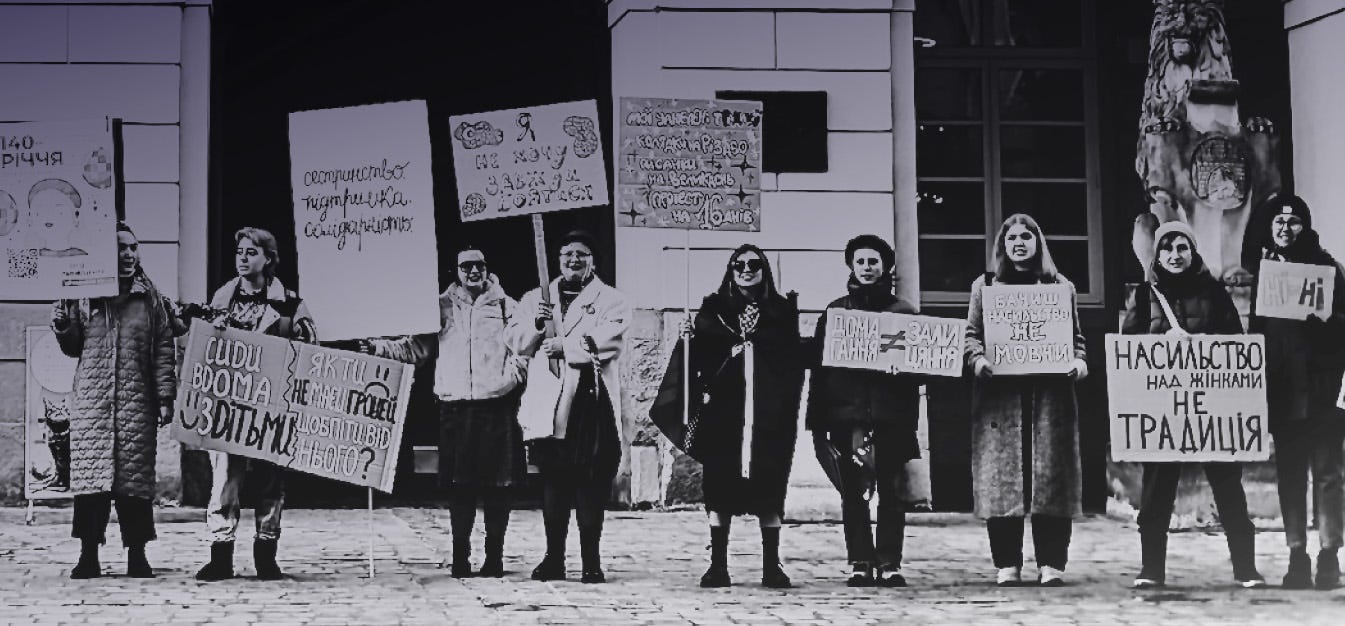





so many air force technical acronyms, would be nice to explain them initially